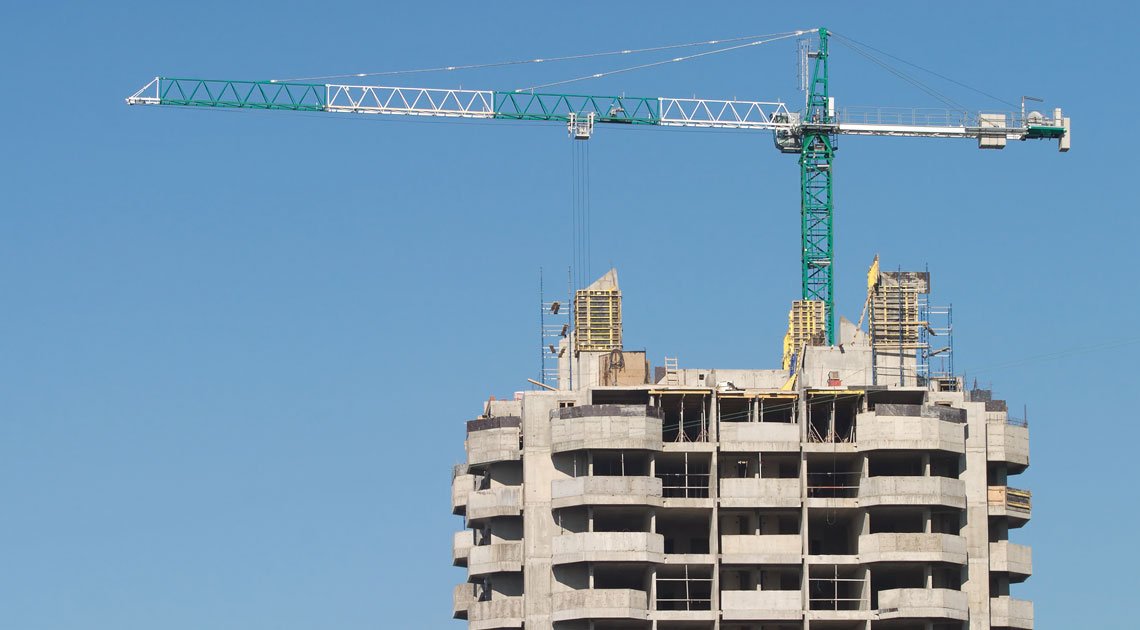Any time you are making structural improvements, lenders will consider this a “construction” loan.
Some examples include:
- Block of land with new home
- Knock down and rebuild
- Significant improvements to current home


Construction loans are specialised and not offered by all lenders. They generally include the following features:
Interest Only the Construction period
This is to accommodate projected increased living expenditure as you will likely need to rent during the construction period. At the completion of the build phase (normally two years), the loan becomes principal & Interest.
The bank controls the release of funds to the builder
This protects you as the bank will check to ensure the works are done before paying the builder and may include a valuation along the way to ensure work completed correctly.
Generally, you will put your money in first
Then the bank will contribute from the Construction Loan. Any surplus funds are returned to you at practical completion. It is best practice to put aside extra to cover changes in specifications and non contract build items.
Discover if you qualify
We can help you refinance your home loan.
Some tips and tricks:
Split contracts is essentially one contract pretending to be two
The land is sold and settled and is subject to you agreeing to build your home with a specified builder. Banks are wary of these types of deals and the majority are unlikely to approve finance. The restrictive nature of who you can build with is a concerns for most lenders
Fixed Price Build Contracts (FPBC), are the usual standard
Definitely check the Progress Payment Schedule. Lenders will need the Deposit, Slab and Frame stages to be less than 50% of the total cost. If the builder is charging you more than 50% for these initial stages it is possible they are using your funds to fund their next project.
Contracts above $1m for Construction by nature of the their size carry more risk
Most builders will require these be done on a Cost Plus basis. This means the build price cannot be determined and may be subject to change. This transfer the risk from the builder to you. As a result not many lenders will accept this contract type. Cost Plus contracts may also incur further costs such as Quantity Surveyor report
Owner Builder contracts may also be restricted in who can lend
As an owner-builder you must have a written contract with tradespeople to do the work. These are wish to take a hands on approach and generally already involved in the building industry.
Some tips and tricks:
You will likely need to pay rent during construction
So it is best to out aside so extra funds. There may be delays along the way due to bad weather or delays in materials
Draw up plans and get a build contract
Make sure the contract covers everything and you agree a time for completion.
There will be out of contract items
These are additional improvements that may not form part of the build contract such as floor and window coverings or landscaping. All additional items you intend to purchase must be formally quoted for purchase and installation.
Have your plans approved
Apply for a Construction Loan pre-approval
This is important as it gives some surety your finance will be approved.
Finalise your plans and lock in the Construction Loan
Once the loan is Formally Approved the build can commence
There are likely unexpected costs along the way if you upgrade your specifications or have additional unbudgeted site costs
The most commonly accepted option that will also give you access to the most lenders is a Fixed Price Build Contract. The build must start within 12 months of signing the contract and be completed within 2 years
You draw money progressively as build works are completed and once the build is complete (practical completion), the final items such as landscaping are finished and the council issues the Occupational Certificate and you can move in
Construction loans are a good example of an ongoing relationship with your mortgage broker. Expert knowledge is needed to ask the right questions, guide you along the way and select the right lender for your build.

